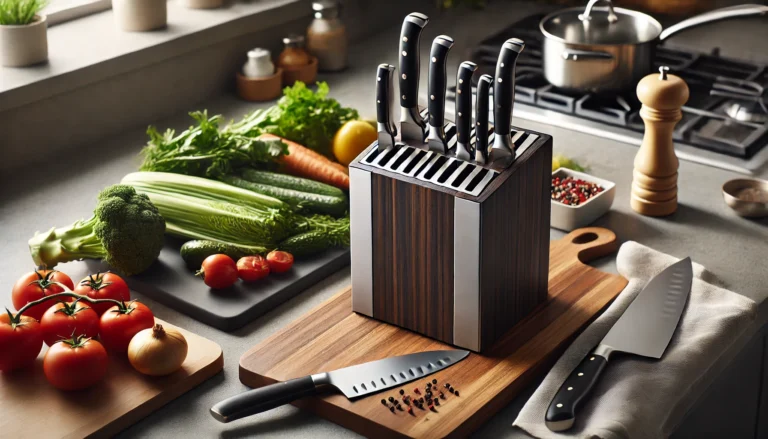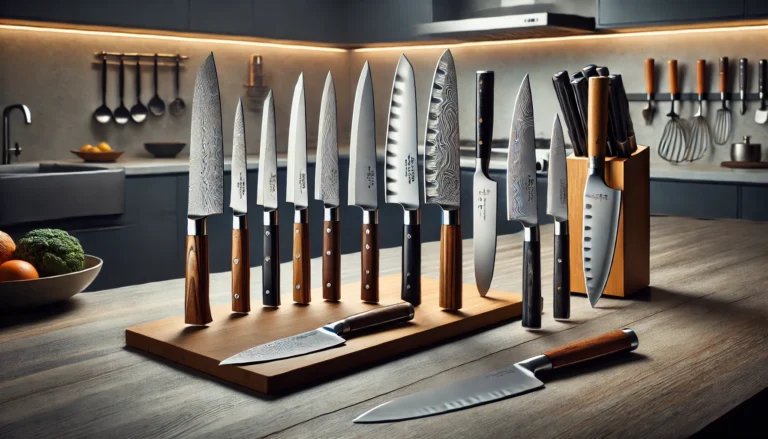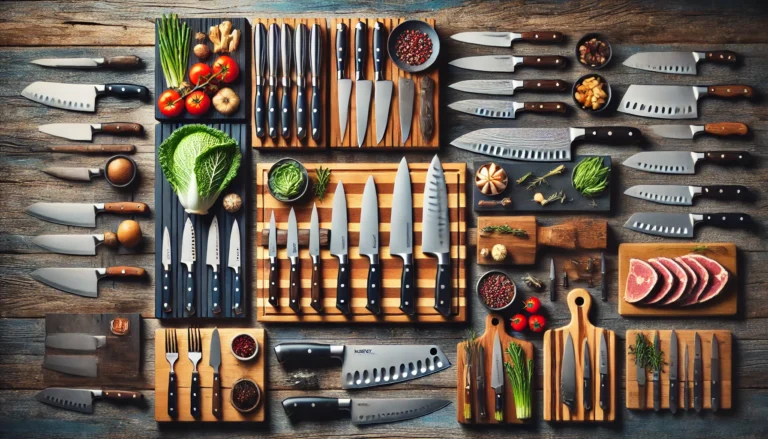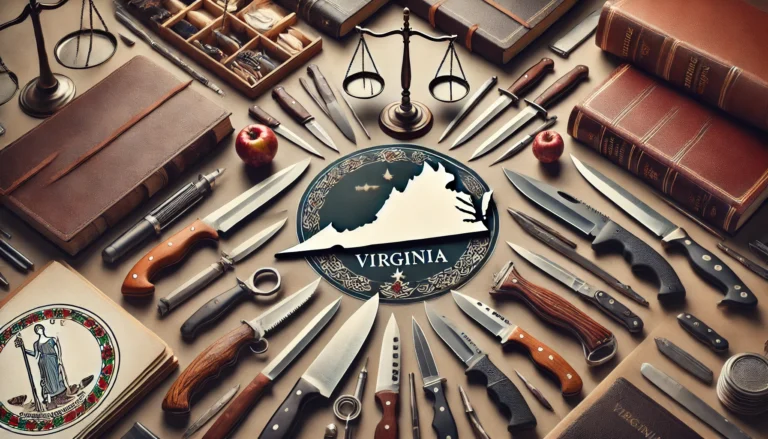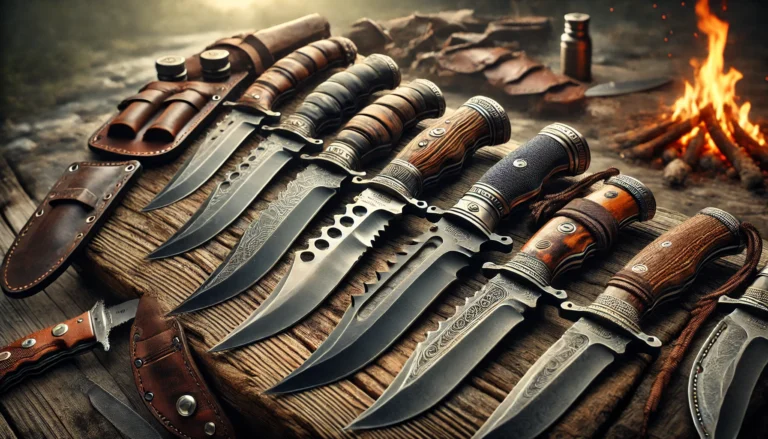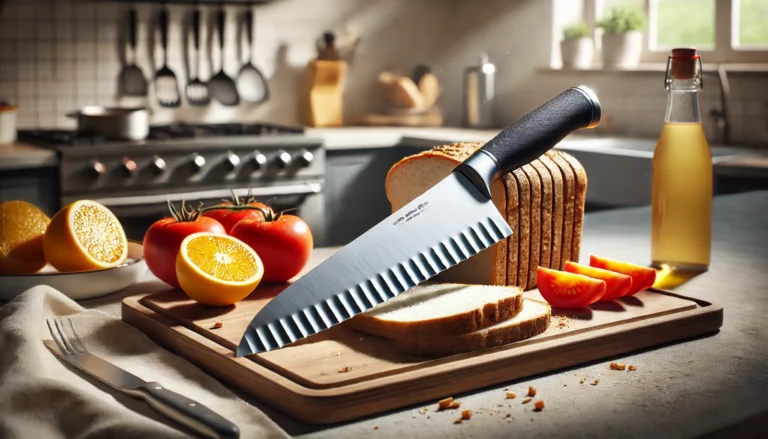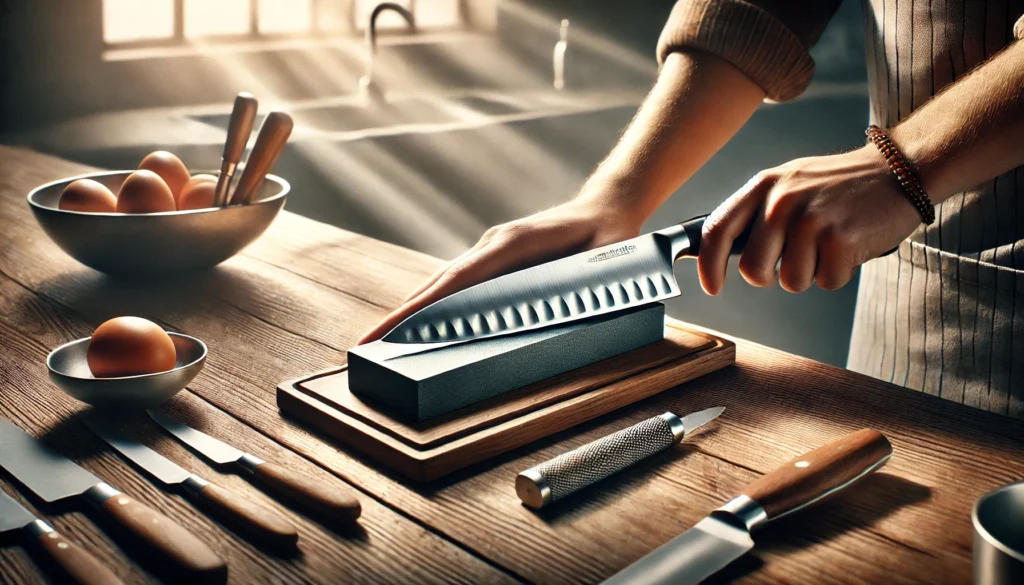
Keeping your kitchen knives in peak condition is crucial for every home cook and culinary enthusiast. But how much does it really cost to have a knife sharpened? This blog explores the details, helping you make an informed decision.
How Much Does It Cost To Have A Knife Sharpened? (Short Answer)
The cost of having a knife sharpened varies widely. On average, it typically ranges from $5 to $10 per knife. Some places may offer package deals for multiple knives. Professional sharpening services might charge more for high-end knives. Always check local services for the best prices.
Why Sharpening Your Knife Matters
Enhancing Performance
A sharp knife is a chef’s best friend. Using eco-friendly, durable blades enhances your cooking experience by reducing the need for excessive force, thus minimizing the risk of slipping and making your kitchen safer. Regular sharpening ensures your knives perform at their best, making slicing, dicing, and chopping a breeze.
Prolonging Lifespan
Consistent sharpening also extends the life of your knives. Neglecting blade maintenance can lead to irreparable damage, shortening their usability. Investing in professional sharpening services can keep your knives in top shape for years, saving you money in the long run.
Improving Safety
Safety in the kitchen should never be compromised. Sharp knives offer more control and reduce the chances of accidents. By keeping your knives well-maintained, you’re enhancing your cooking experience and ensuring a safer kitchen environment.
Factors Affecting Sharpening Costs
Type of Knife
The type of knife you need to be sharpened plays a significant role in determining the cost. Standard kitchen knives are usually less expensive to sharpen than special knives like serrated blades or Japanese knives, which require more skill and time.
Condition of the Blade
The condition of your knife also impacts the cost. Sharpening a blade with minor dullness is less labour-intensive than restoring a heavily damaged or chipped edge. The more work required, the higher the price you’ll likely pay.
Service Provider
Different sharpening service providers have varying pricing structures. Professional knife sharpening services, local hardware stores, and even mobile sharpening units offer distinct price points based on their expertise and equipment.
Average Cost of Professional Sharpening Services
In-Store Sharpening
Many kitchen supply stores and hardware shops offer knife sharpening services. Prices typically range from $5 to $10 per knife. These convenient and reliable services make them popular for many home cooks.
Mobile Sharpening Services
Mobile sharpening services bring convenience right to your doorstep. These services often charge between $7 and $12 per knife. Though slightly more expensive, they save you the hassle of transporting your knives.
Professional Sharpening Shops
Professional sharpening shops are the way to go for those seeking top-notch sharpening. Depending on the job’s complexity, these experts may charge $10 to $25 per knife. The investment is worth it for high-quality and precision sharpening.
DIY Knife Sharpening Options
Sharpening Stones
Sharpening stones, or whetstones, are a popular choice for DIY sharpening. Depending on the quality and grit, they range in price from $20 to $100. While they require some practice, they offer a cost-effective way to maintain your knives at home.
Electric Sharpeners
Electric sharpeners provide a quick and easy solution for home sharpening. They typically cost between $30 and $150. Although they may offer different precision than professional services, they are convenient and user-friendly.
Manual Sharpeners
Manual pull-through sharpeners are another affordable option, ranging from $10 to $60. These tools are easy to use and can effectively sharpen most kitchen knives. However, they may not be suitable for high-end or speciality knives.
How Often Should You Sharpen Your Knives?
Frequency of Use
The frequency of knife sharpening depends on how often you use your knives. For daily users, sharpening every 1 to 2 months is recommended. For occasional cooks, every 3 to 6 months should suffice.
Maintenance Between Sharpenings
Regular honing with a honing rod can help maintain your knife’s edge between professional sharpenings. Honing realigns the blade, keeping it sharp and ready for use. Performing this simple task before each use can significantly extend the time between sharpenings.
Signs Your Knife Needs Sharpening
Knowing when to sharpen your knife is crucial. If your knife struggles to cut through tomatoes or slips on onions, it’s time for a sharpening. Additionally, if the blade feels dull or requires extra pressure, don’t wait – get it sharpened.
Benefits of Professional Sharpening
Precision and Expertise
Professional sharpeners have the skills and tools to deliver precise and consistent results. They can restore your knives to their original sharpness, ensuring optimal kitchen performance.
Time-Saving
Using professional services saves you time and effort. Instead of spending hours trying to sharpen your knives at home, you can rely on experts to get the job done quickly and efficiently.
Longevity
Professionally sharpened knives tend to last longer. The expert care and attention they receive help maintain the blade’s integrity, prolonging its lifespan and saving you money in the long run.
Comparing Costs DIY vs. Professional Sharpening
Initial Investment
DIY sharpening requires an initial investment in tools like sharpening stones or electric sharpeners. While this cost can add up, it pays off long-term if you regularly maintain your knives.
Long-Term Savings
Although professional sharpening services have recurring costs, they offer peace of mind and consistent results. Professional services provide a hassle-free alternative for those who prefer to avoid investing time and effort in DIY sharpening.
Which Option Is Right for You?
The decision between DIY and professional sharpening depends on your preferences and needs. DIY sharpening is an excellent option if you enjoy hands-on tasks and want to save money. However, professional services are worth the investment if you prioritize convenience and precision.
Tips for Choosing a Sharpening Service
Read Reviews
Before selecting a sharpening service, read customer reviews to gauge the quality of their work. Look for feedback on their expertise, turnaround time, and customer satisfaction.
Ask for Recommendations
Word-of-mouth recommendations can be valuable when choosing a sharpening service. Ask friends, family, or fellow culinary enthusiasts for their trusted providers.
Check Credentials
Ensure the sharpening service has the necessary credentials and experience. A reputable service will have skilled technicians and proper equipment to handle your knives carefully.
Conclusion:
The cost of sharpening a knife varies depending on where you go. In-store services usually cost between $5 and $10 per knife, while mobile services might charge $7 to $12. Professional shops, reflecting their expertise, can charge $10 to $25. DIY options are also available, though they require an initial investment. Ultimately, choose the option that best fits your needs and budget.
FAQs
The cost of getting a knife sharpened by a professional often ranges from $10 to $25 per knife. The price can vary depending on the complexity of the sharpening required and the expertise of the sharpener.
Mobile sharpening services can cost slightly more, typically between $7 and $12 per knife. However, they offer the convenience of coming to your location, saving you time and effort.
Sharpening stones, also known as whetstones, can cost anywhere from $20 to $100. The price depends on the quality and grit of the stone you choose.
Electric knife sharpeners generally cost between $30 and $150. These devices provide a quick and easy way to sharpen knives at home, although they may achieve a different precision than professional services.
Manual pull-through sharpeners are usually more affordable, ranging from $10 to $60. They are easy to use and can effectively sharpen most kitchen knives, though they may be better for high-end or speciality knives.

